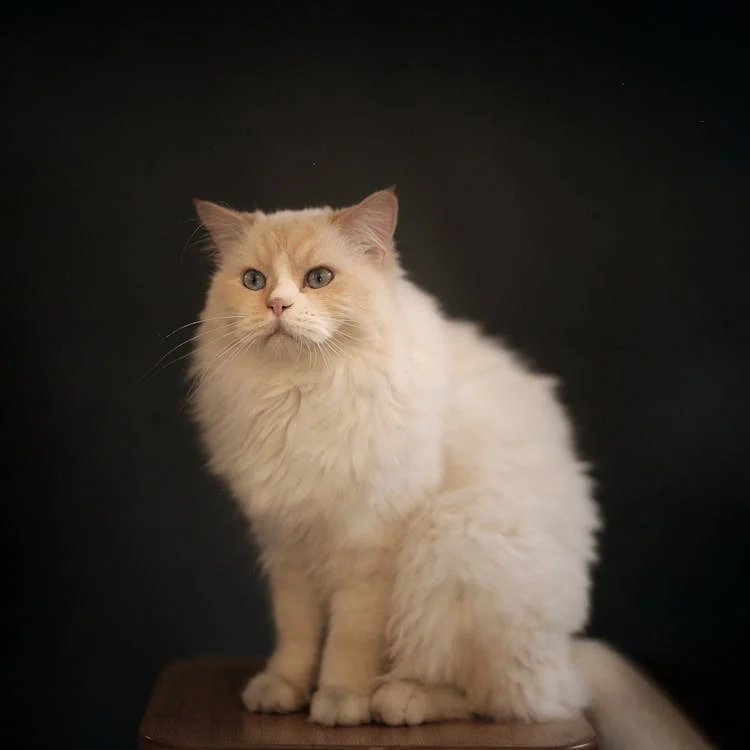Ragdoll cats, known for their striking blue eyes and silky fur, are equally renowned for their serene disposition and heartwarming affection. This blog post delves into the affectionate nature of Ragdoll cats, providing insights into why they are considered one of the most loving cat breeds. Join us as we explore the world of these gentle giants through five detailed sections.
Understanding the Ragdoll’s Loving Nature
Ragdoll cats are often described as “puppy-like” due to their tendency to follow their owners around and their craving for human interaction. This breed thrives on companionship, and their affectionate behavior is a hallmark of their personality. Unlike some feline breeds that demand affection on their terms, Ragdolls display a consistent willingness to engage with their family members. They not only seek out human presence but also actively participate in family activities, making them excellent companions.
The affection of Ragdoll cats is rooted in their genetics. Originally bred in the 1960s from cats selected for their docile and affectionate nature, Ragdolls were designed to be a part of the family. Their nurturing behavior is complemented by a calm demeanor that makes them perfect for households with children and other pets. Their ability to adapt to various environments and social settings is another reason why they are so beloved.
The Signs of Affection in Ragdoll Cats
Ragdoll cats express their love in several distinctive ways. One of the most endearing is their habit of greeting their owners at the door, much like a dog might. This breed often uses physical contact, such as nuzzling or head-butting, to show affection. Such behaviors not only strengthen the bond between the cat and its owner but also provide comfort and reassurance to the cat.
Another sign of affection in Ragdoll cats is their tendency to go limp when picked up, which is actually how they got their name. This trait is not just a display of trust but also an indication of their relaxed nature when in the arms of someone they love. Moreover, Ragdolls are known to shadow their owners, displaying loyalty and a desire to be involved in every aspect of their daily routine. This behavior underscores their need for interaction and companionship.

The Role of Environment in Nurturing Affection
While Ragdoll cats are naturally affectionate, their environment plays a crucial role in shaping this behavior. A nurturing, loving, and stable home environment will enhance the affectionate traits of a Ragdoll. Regular playtime, attention, and social interaction can deepen the bond between you and your pet, encouraging their affectionate nature to flourish.
Conversely, neglect or a stressful environment can make even the most affectionate Ragdoll withdrawn and distant. Owners must ensure that their Ragdoll feels as much a part of the family as any human member. This includes involving them in activities, providing plenty of affection, and recognizing their needs for companionship and comfort.
Comparing Ragdoll Affection with Other Cat Breeds
When compared to other cat breeds, Ragdolls often stand out for their particularly affectionate nature. While breeds like the Siamese or the Maine Coon are also known for their friendliness, Ragdolls exhibit a unique level of emotional openness and attachment to their owners. This makes them an ideal choice for families seeking a truly interactive pet.
Unlike more independent breeds, such as the Russian Blue or the Scottish Fold, Ragdolls are less likely to spend long periods alone. They prefer being in the company of their owners and can sometimes display signs of separation anxiety if left alone for too long. This breed’s need for affection and interaction is a significant consideration for potential pet owners.
Enhancing and Maintaining the Bond with Your Ragdoll
To maintain and enhance the affectionate bond with your Ragdoll, consider implementing a routine that includes regular playtime and cuddling sessions. Toys that stimulate their hunting instincts can provide both physical exercise and mental stimulation, keeping your Ragdoll happy and engaged. Furthermore, regular grooming sessions not only keep their coat in good condition but also provide an excellent opportunity for bonding.
It’s also beneficial to educate yourself on the subtle cues your Ragdoll uses to communicate comfort and affection. Responding to these cues appropriately can help reinforce your Ragdoll’s trust and affection. Consistency in your interactions will not only secure their affection but also assure them of their valued place in your home.
Conclusion
In conclusion, the affection of Ragdoll cats is a defining trait that endears them to many. Their capability to bond deeply with their owners and their constant display of love and loyalty make them more than just pets; they are true companions. By understanding and nurturing these traits, you ensure a loving and fulfilling relationship with your Ragdoll cat for years to come.

Hey guys, My name is Simon Smith. I’m from Canada and live near Victoria
I live with my sweet family and have 20+ Ragdolls of different types. I love them as my children. My profession is as a hotel manager.
I love to keep Ragdolls and grow their breeder case. I have 7 years of experience.
I’m an expert in cat care. So, I’m here to provide you with new information about my cats daily. This is my blog website, so I request that you kindly visit our site daily.
If you’re a Ragdolls lover and you have any questions or confusion about cats, text me on the Contact Us page or Gmail.
Thank u
